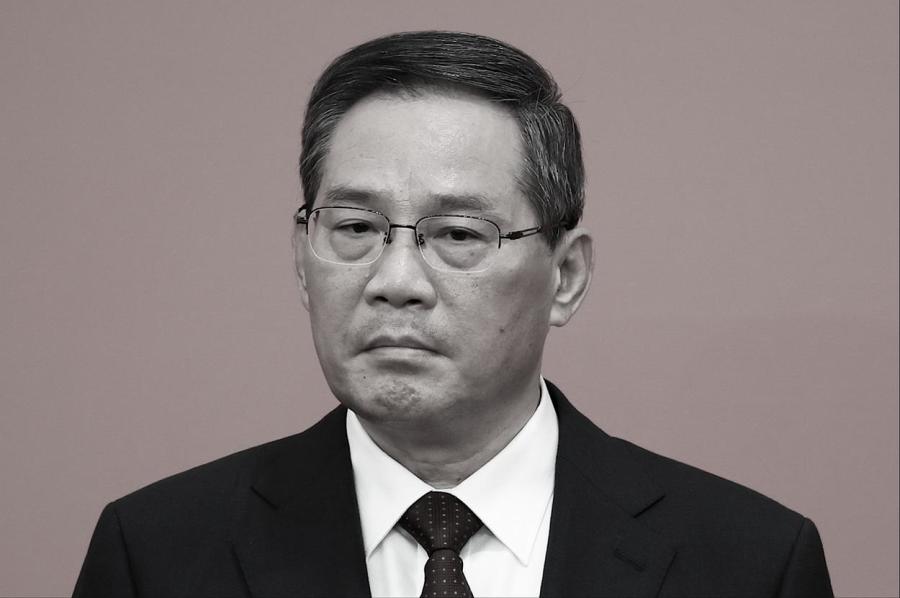Chinese Premier Li Qiang‘s Profile Photo. (Photo by Lintao Zhang/Getty Images)
[People News] In recent times, Chinese Premier Li Qiang seems to have shaken off the fate of being a weak premier, stepping into the spotlight and even attending important meetings in place of Xi Jinping. There is much speculation circulating that Li Qiang is Xi Jinping’s chosen successor. So who exactly is Li Qiang, and what was Xi Jinping’s purpose in selecting him as premier? The independent media outlet Youliao has revealed some inside information about the true relationship between Li Qiang and Xi Jinping.
Youliao summarised that Li Qiang has the "five lows" (or "five leasts"):
1. Lowest educational background. Youliao disclosed that Li Qiang only attended a vocational secondary agricultural school in Zhejiang and holds only a vocational diploma.
According to Wikipedia, Li Qiang was born in Mayu Town, Rui’an County, Wenzhou, Zhejiang Province. His given name was Fuqiang. He completed his primary and secondary education in Mayu, and in July 1976, at age 17, he began working immediately after graduating from secondary school. After the national college entrance exams resumed, he studied Agricultural Mechanisation at the Ningbo Branch of Zhejiang Agricultural University from September 1978 to July 1982 and earned a bachelor’s degree.
Wikipedia also notes that Li’s early official resume listed his education as “Zhejiang Agricultural University (now Zhejiang University),” but after becoming Premier, this was corrected to “Studied Agricultural Mechanisation at the Ningbo Branch of Zhejiang Agricultural University.” At that time, the school was not accredited to grant degrees and used Zhejiang Agricultural University’s name for admissions. The Ningbo Branch has since been restructured into Zhejiang Wanli University.
2. Weakest in power.
According to Youliao, today’s State Council under Li Qiang is essentially just a large office established by Xi Jinping within the northern compound of Zhongnanhai—it’s basically an extension of Xi’s own office.
3. Worst background.
Public records show Li Qiang comes from a poor rural family in Zhejiang. His father became a live-in son-in-law (i.e., joined his wife’s family upon marriage), which reflected a lower social standing.
4. Most controversial Premier.
Youliao notes that Li Qiang is the only Premier since Zhou Enlai who was appointed directly without serving as a Vice Premier or holding any central government position beforehand.
Furthermore, Li Qiang made several political missteps even before rising to power. The outbreak of COVID-19 derailed the careers of many local officials, but it had no impact on Li Qiang’s rapid promotion to Beijing. While he was Party Secretary of Shanghai, the city suffered deeply under COVID-19 lockdowns, with widespread public discontent and severe economic losses.
5. Least governing vision.
Youliao criticises Li Qiang for lacking any personal political vision since taking office. He simply does whatever Xi instructs, acting more like the director of the General Office than the Premier.
Youliao argues that Li Qiang was chosen by Xi Jinping precisely because he is the least capable—his weaknesses made him the ideal pick.
Youliao claims that Li Qiang was assigned to Shanghai specifically so he could be groomed to succeed then-Premier Li Keqiang at the 20th Party Congress. Li Qiang fully understood the arrangement and followed Xi’s orders closely. He is undoubtedly grateful to Xi.
In reality, Li Qiang comes from a humble background, with no strong political base. In Beijing, he has no allies other than Xi. That makes him easy for Xi Jinping to control. Youliao reports that after Li Qiang became Premier at the 20th Party Congress, Xi handed him two major tasks:
First, Xi gave Li Qiang five years to completely purge the State Council of Li Keqiang’s legacy, including removing all officials who had aligned with Li Keqiang’s governance approach.
Second, Li Qiang was tasked with stripping the State Council of its actual power. After five years, Xi wants to see a central government where the State Council has no real function. The title “Premier” may still exist, but only as a figurehead.
This means the power struggle between the southern and northern compounds of Zhongnanhai—between the Communist Party's Central Committee (south) and the State Council (north)—will be resolved in Xi’s favour, with only Xi’s authority remaining at the center.
At the same time, Youliao emphasises that the more Xi tightens control and centralises power, the more it reveals his insecurity.
Youliao concludes that at this critical moment in history, Xi Jinping’s outward show of strength only highlights his inner weakness and anxiety. His fall from power, when it comes, will likely be sudden and unexpected by the outside world. △







News magazine bootstrap themes!
I like this themes, fast loading and look profesional
Thank you Carlos!
You're welcome!
Please support me with give positive rating!
Yes Sure!